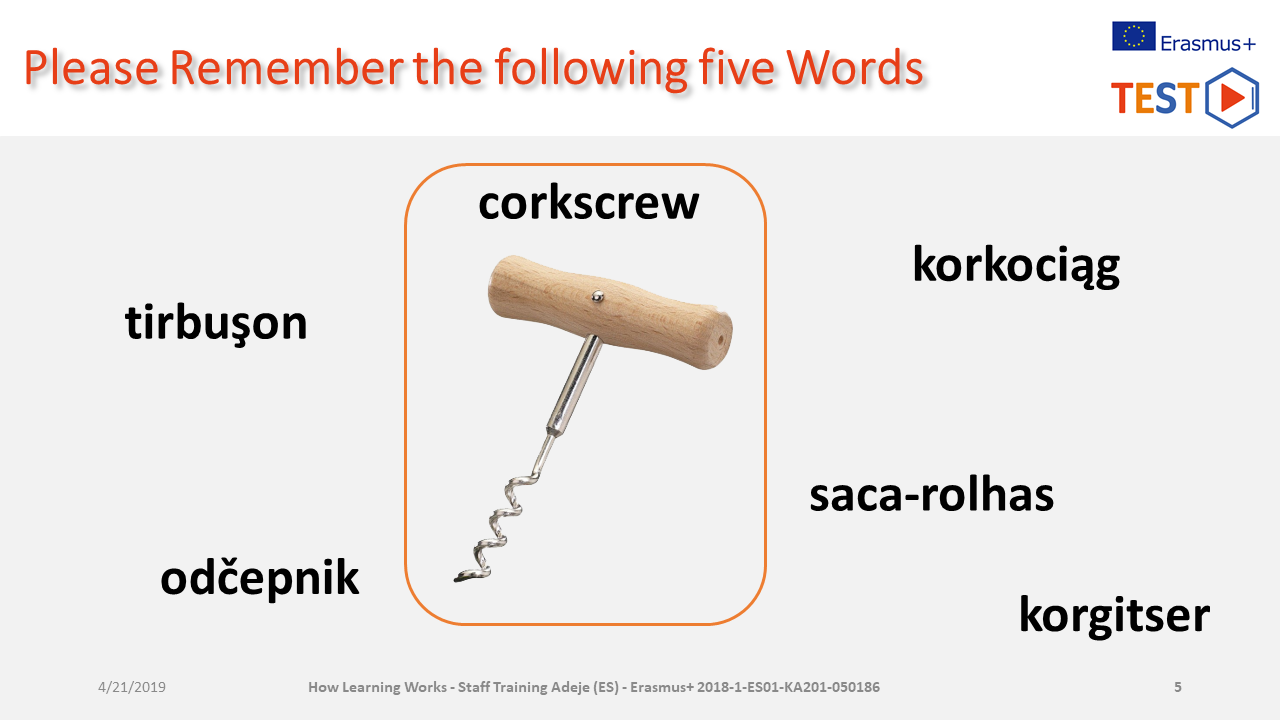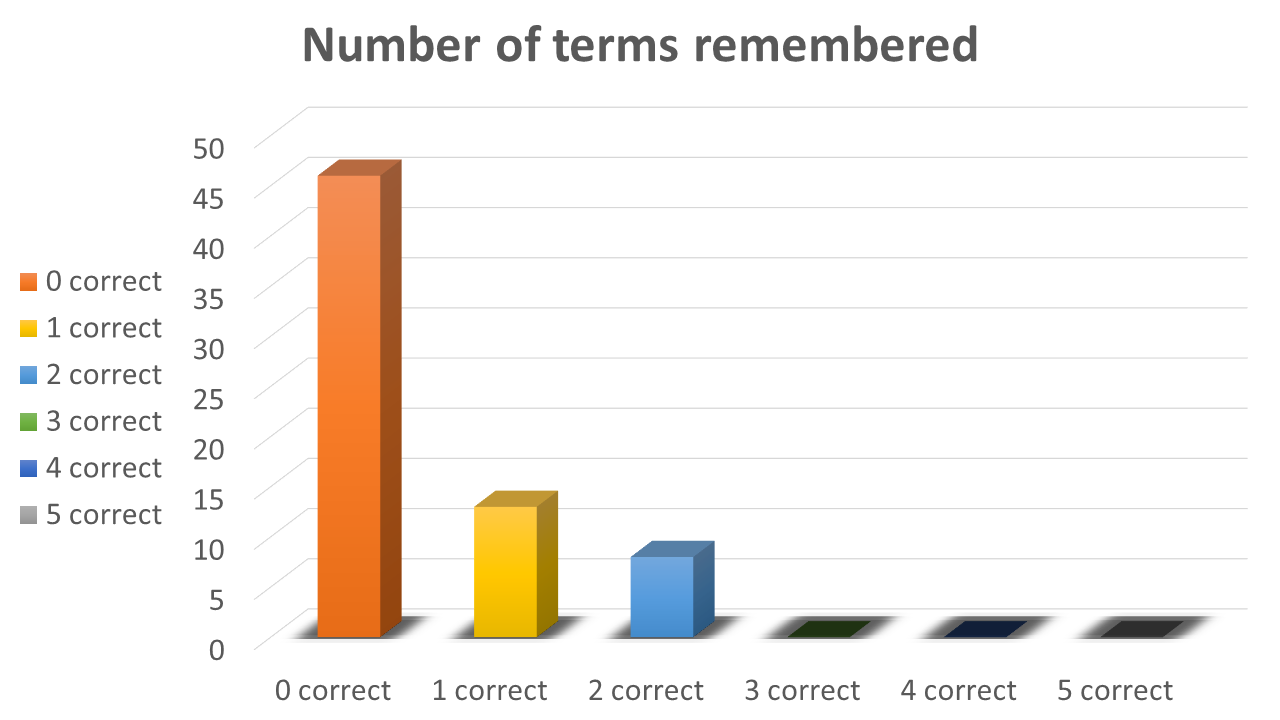Today’s learning often is mixed up with information procurement, especially when it is done with smartphones: Someone is searching for some information, takes the smartphone, checks „oncle Google“ and finds the requested information. Now he thinks he has learned something. Short time later (that can be even minutes) he has forgotten, what he had found. This means: sustainable learning results are at zero level.
Here is an example (called the corkscrew experiment) in which you can see that „require information“ is not the same as sustained learning.:
In the corkscrew experiment the trainer shows the learners 5 different words for the term Corkscrew (in exotic languages). They have 30 seconds time to memorize.
After this time the trainer continues with the training. After the training (it should be between half an hour and an hour) the trainer gives some sheets of paper to the trainees and they should write down the terms for corcscrew they remember.
The result is always similar (in all age groups): 5 % to 15 % can remember one word, all the others do not remember any of the exotic langage words.
Here is the evaluation of this experiment done with students. The sample are 67 students aged between 14 and 17 years old. Students are typically expected to have good memory because that is their main activity – learning. Please check the statistics and form your own opinion!
Peter Mazohl is president of the European Initiative for Education. He was teaching for more than 40 years at high schools, currently he is member of the Institute of Analysis and Scientific Computing at the University of Technology Vienna.


